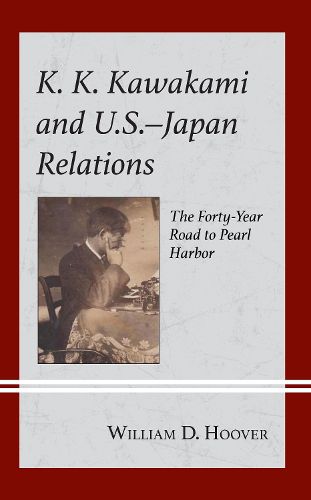Readings Newsletter
Become a Readings Member to make your shopping experience even easier.
Sign in or sign up for free!
You’re not far away from qualifying for FREE standard shipping within Australia
You’ve qualified for FREE standard shipping within Australia
The cart is loading…






K. K. Kawakami, the most prolific journalist writing on U.S.-Japan relations in the forty-years before Pearl Harbor, analyzed and described the interaction between the country of his birth and his adopted country. His more than 2,000 publications show a gradual decline in US-Japan relations from the early twentieth century to Japan's attack on the US. K. K. Kawakami and U.S.-Japan Relations: The Forty-Year Road to Pearl Harbor provides a careful reading of his analysis of U.S.-Japan relations to show that both countries bear responsibility for the tragic clash in Hawaii. From the Russo-Japanese War (1904-05) until the Japanese attack on Manchuria (1931), the United States bore a major responsibility with its anti-Japanese policies, racial discrimination, and failure to recognize Japan's role in in the world but with Japan's aggression in Manchuria, Japan became the primary actor. Relations between Japan and the U.S. declined gradually over a long period with both sides bearing responsibility.
$9.00 standard shipping within Australia
FREE standard shipping within Australia for orders over $100.00
Express & International shipping calculated at checkout
K. K. Kawakami, the most prolific journalist writing on U.S.-Japan relations in the forty-years before Pearl Harbor, analyzed and described the interaction between the country of his birth and his adopted country. His more than 2,000 publications show a gradual decline in US-Japan relations from the early twentieth century to Japan's attack on the US. K. K. Kawakami and U.S.-Japan Relations: The Forty-Year Road to Pearl Harbor provides a careful reading of his analysis of U.S.-Japan relations to show that both countries bear responsibility for the tragic clash in Hawaii. From the Russo-Japanese War (1904-05) until the Japanese attack on Manchuria (1931), the United States bore a major responsibility with its anti-Japanese policies, racial discrimination, and failure to recognize Japan's role in in the world but with Japan's aggression in Manchuria, Japan became the primary actor. Relations between Japan and the U.S. declined gradually over a long period with both sides bearing responsibility.